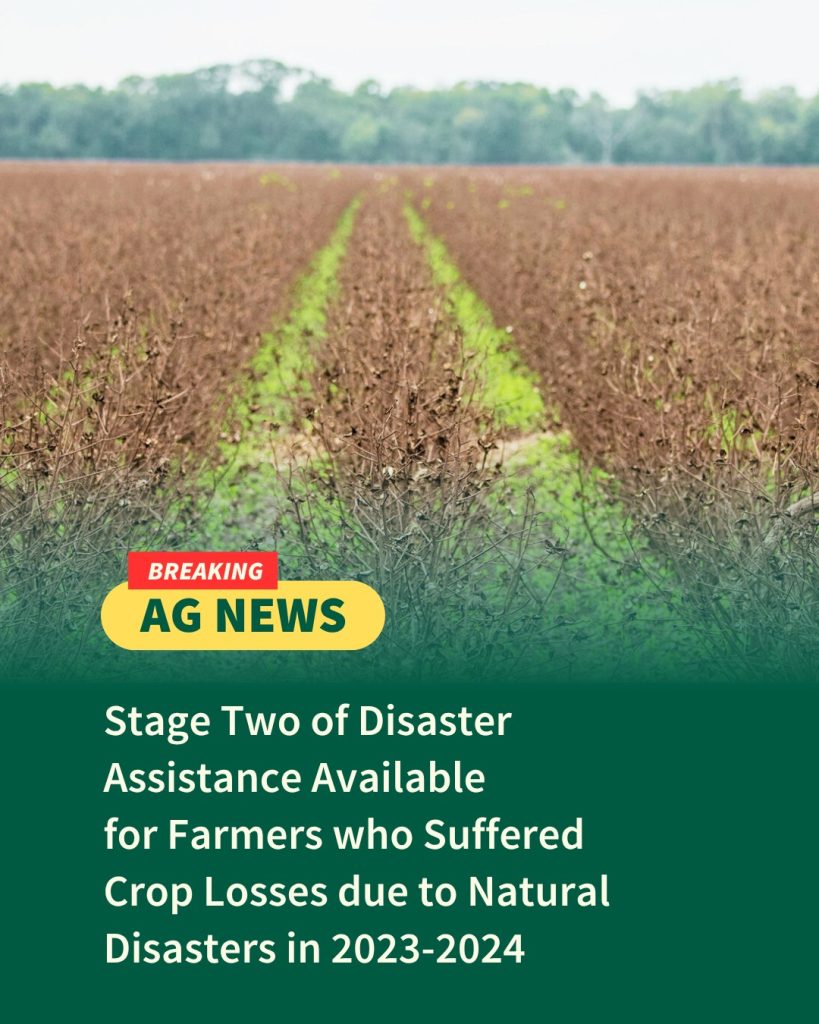The U.S. Department of Agriculture (USDA) has announced the opening of Stage 2 of the Supplemental Disaster Relief Program (SDRP), beginning November 24, 2025, expanding federal assistance to producers who suffered crop, tree, bush, or vine losses during the 2023–24 natural disasters. This phase provides support for losses not covered under Stage 1, including uninsured (shallow-loss) impacts and quality losses — a significant development for California’s specialty crop sector.
Enrollment for SDRP (both stages) Stage 1 and Stage 2 will be available November 24, 2025 through April 30, 2026.
USDA has also opened additional programs for producers with other disaster-related losses:
– Milk Loss Program (MLP) https://www.fsa.usda.gov/mlp
– On-Farm Stored Commodity Loss Program (OFSCLP) https://www.fsa.usda.gov/ofsclp
Both programs share a shorter enrollment window: November 24, 2025 through January 23, 2026.
“California’s specialty crop producers have faced repeated and devastating climate-driven impacts in recent years. USDA’s decision to include uninsured and quality losses in Stage 2 of the Supplemental Disaster Relief Program is an important step in ensuring these growers are not left behind.
Karen Ross, Secretary, California Department of Food and Agriculture
I want to thank Under Secretary Richard Fordyce for his leadership and for recognizing the unique challenges faced by specialty crop farmers. His commitment helps ensure that California’s diverse crops, from orchards and vineyards to our many specialty crops—are appropriately supported in this round of federal assistance.”
CDFA encourages growers to review the USDA fact sheets and reach out to their local Farm Service Agency (FSA) office for guidance on eligibility and application requirements.
Producers can apply and find the application documents for the program: Apply and Learn More — SDRP Stage 1 & Stage 2



